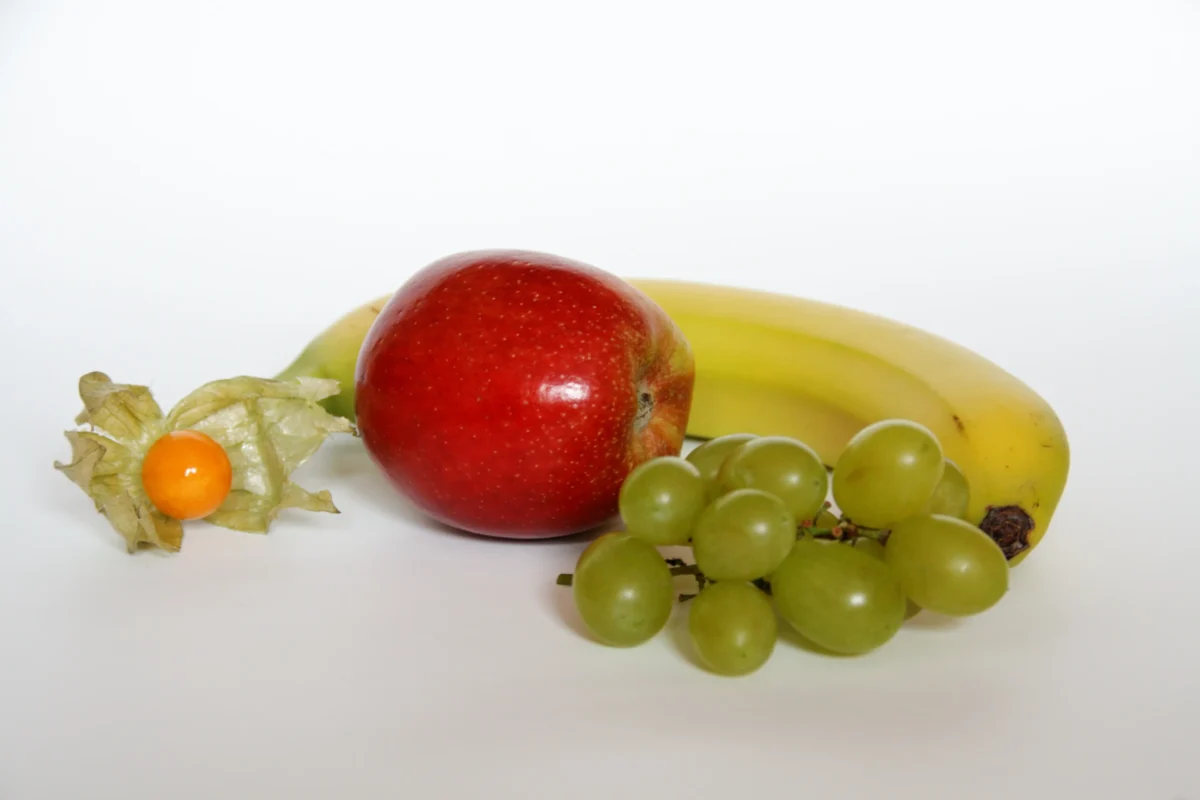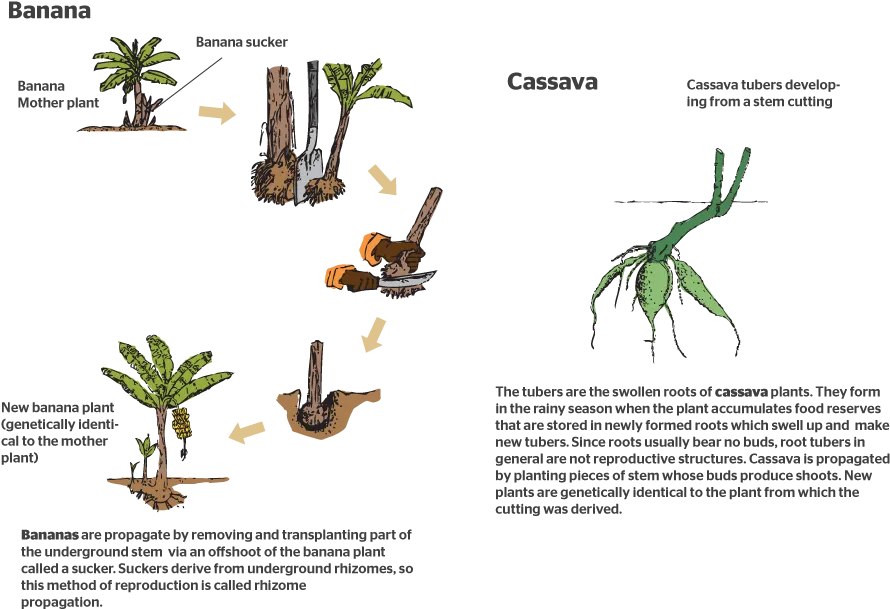Wondering how many calories are in a banana? Well, it depends, but let’s look into it further.

A medium-sized banana (about 7 inches long and 1 inch in diameter) contains about 105 calories. The exact number of calories in a banana can vary depending on its size and the type of banana.
For example, a small banana (6 inches long and about 1 inch in diameter) contains about 90 calories, while a large banana (8-9 inches long and about 1-1 1/2 inches in diameter) contains about 120 calories.
Are you trying to cut as many calories from your diet as you can?

There are millions of Americans trying to do this at the moment, and they’re taking all kinds of different approaches to it. From choosing water over other beverage options to steering clear of certain sauces and dressings, they’ve made it their mission to avoid taking in too many calories each day.
With this in mind, you might be asking yourself the question, “How many calories are in a banana?”, if you enjoy eating bananas on a regular basis. It’s a valid concern for all the banana lovers out there.
But the good news is that you don’t have to worry too much about taking in an excessive amount of calories when you eat bananas. According to the U.S. Department of Agriculture, there are only about 105 calories in a medium-sized banana.
This is one of the many health benefits that come along with eating bananas. Here’s some other information regarding bananas, their calories, and the healthiness of eating bananas.
Are Bananas Good for You to Lose Weight?
Eating bananas can be a beneficial part of any weight loss plan. Bananas are low in calories and high in fiber, making them an excellent snack option that helps to keep you feeling full while still promoting healthy weight loss.
They also provide essential nutrients like Vitamin C, B6 and potassium which aid the body’s natural metabolic processes for energy production and fat burning.
In addition to providing valuable nutrition benefits, bananas contain resistant starch which is known to enhance satiety levels by slowing digestion down so that you can feel fuller longer after eating them.
Eating just one banana a day may help reduce food cravings throughout the day as well as helping with overall calorie intake control – two key components of successful long-term weight management plans.
Furthermore, studies have shown that people who ate at least one banana per day had lower BMIs than those who did not consume this fruit regularly!

Overall, adding some ripe or green (depending on your preference) bananas into your daily diet will give you the great nutritional content needed for optimal health alongside aiding with sustainable long-term weightloss efforts!
Are Bananas Protein or Carbs?
Bananas are a great source of nutrition and contain both carbs and protein. While they may not be the ideal source of proteins, bananas do provide a small amount ranging from 0.3g to 1.1g per 100g depending on ripeness and variety.
On the other hand, bananas contain more carbohydrates than protein; one medium-sized banana contains about 25 grams of carbs, most of which come in the form starches or sugars such as glucose, fructose and sucrose.
Altogether these macronutrients make up for an excellent combination that provides us with energy – essential for leading active lifestyles – while providing our bodies with important minerals like magnesium, potassium phosphorus and zinc found mainly in its peel but also throughout its fleshy part too!
Bananas can definitely help you reach your dietary goals whether it be gaining muscle mass or losing weight since they are low calorie snacks packed with vitamins & minerals making them an excellent choice when needed during physical activity or if feeling lethargic due to fatigue caused by lack thereof any nutritional value intake!
How Many Calories Does 1 Piece of Banana Have?
A single banana contains approximately 105 calories. It is a great source of fiber, potassium, and many other essential nutrients that can help keep the body healthy.

« The Ultimate Guide to Safely Cutting Bananas for Your Baby’s First Food
How to Make Delicious Banana Bread with Honey: Step-by-Step Recipe and Expert Tips »
Bananas are also rich in antioxidants, which can help reduce inflammation and protect against damage from free radicals. This makes them an excellent snack for those who want to maintain their health without sacrificing taste or convenience!
Eating one piece of banana (about 7-8 inches long) provides ample energy throughout the day while still providing a range of benefits to overall health.
Do Bananas Have a Lot of B12?
No, bananas do not contain a significant amount of B12. This essential vitamin is found primarily in animal sources such as fish, eggs, and dairy products.
While some plant-based foods (such as nutritional yeast) are fortified with B12 to make them an adequate source for vegetarian and vegan diets, bananas do not contain any significant amounts of this important nutrient.
Therefore it is necessary to get your daily dose from other food sources or supplements if you need it.
What Fruit Is Best for Weight Loss?
Fruit is an essential part of any weight loss plan. It provides the body with vitamins, minerals, and fiber that help regulate digestion and reduce cravings for unhealthy snacks. Additionally, certain fruits are particularly beneficial for weight loss because they are low in calories but packed with nutrition.
When selecting fruit to aid your weight loss plan it’s best to focus on those high in fiber like apples, oranges or berries which can help you feel fuller longer while providing essential nutrients at the same time.
Fruits like watermelon or cantaloupe also contain a large amount of fluids that can further keep hunger levels manageable. To maintain a balanced diet be sure to include some other sources of proteins such as nuts or avocados as well as healthy fats found in olive oil and coconut oils too!
Is a Banana a Day Too Much Sugar?
Eating a banana every day may seem harmless, but it can add up to an excessive amount of sugar consumption. While the occasional banana is perfectly fine for most people, eating one on a daily basis can lead to unhealthy levels of sugar intake.
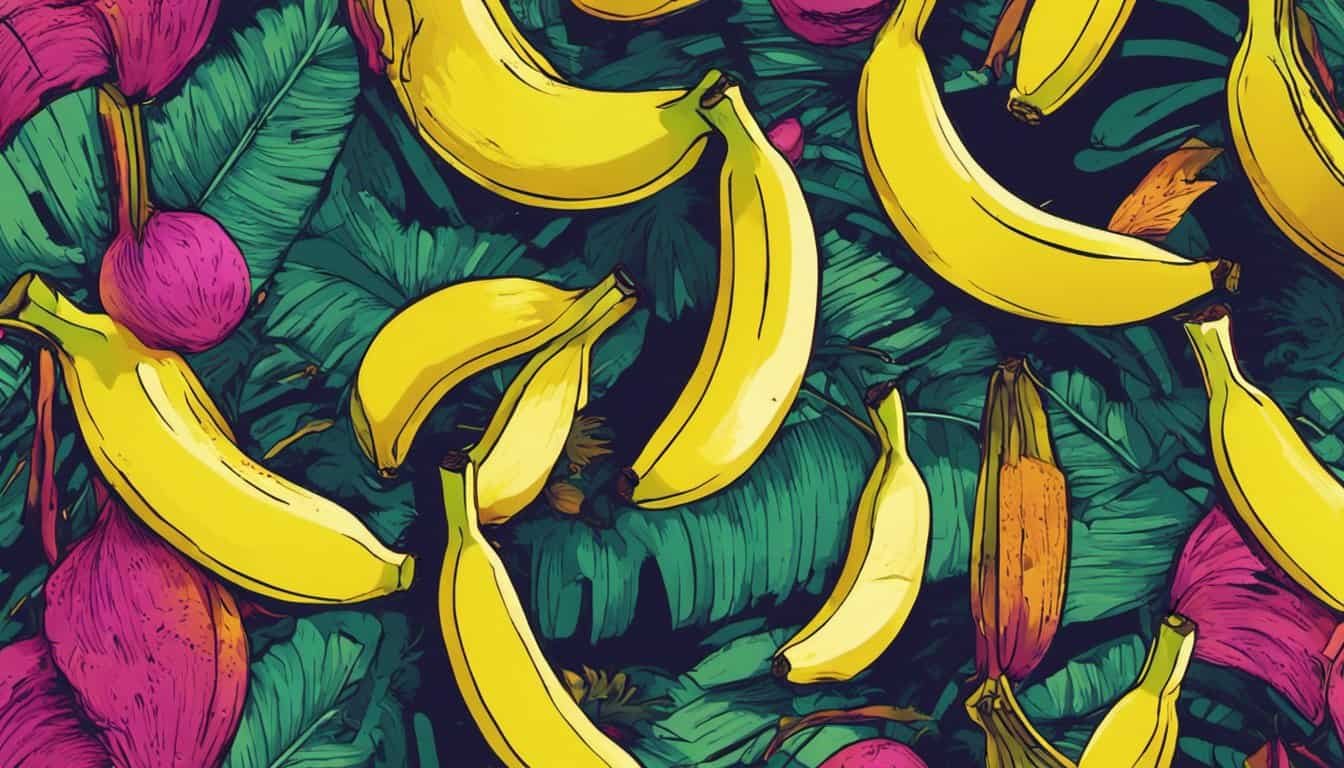
Bananas contain both fructose and glucose, two simple sugars that our body uses for energy. A medium-sized banana provides around 17 grams of natural sugars – which is more than double the American Heart Association’s recommended daily limit for added sugars (6 teaspoons).
Eating too much added or natural sugar increases your risk in developing type 2 diabetes and coronary heart disease as well as contributing towards weight gain over time.
If you find yourself craving something sweet each day then bananas are definitely not off limits; they are packed with fiber, vitamins and minerals like potassium which promote health benefits such as aiding digestion and helping maintain blood pressure levels.
Just be sure to take into account how many other sources of added or processed sugary foods you consume throughout the day before reaching out for that delicious yellow fruit!
Is 2 Bananas a Day Too Much?
Eating two bananas a day can be beneficial for many people as it provides important nutrients, fiber and vitamins. However, eating too much of anything can have negative effects on health.
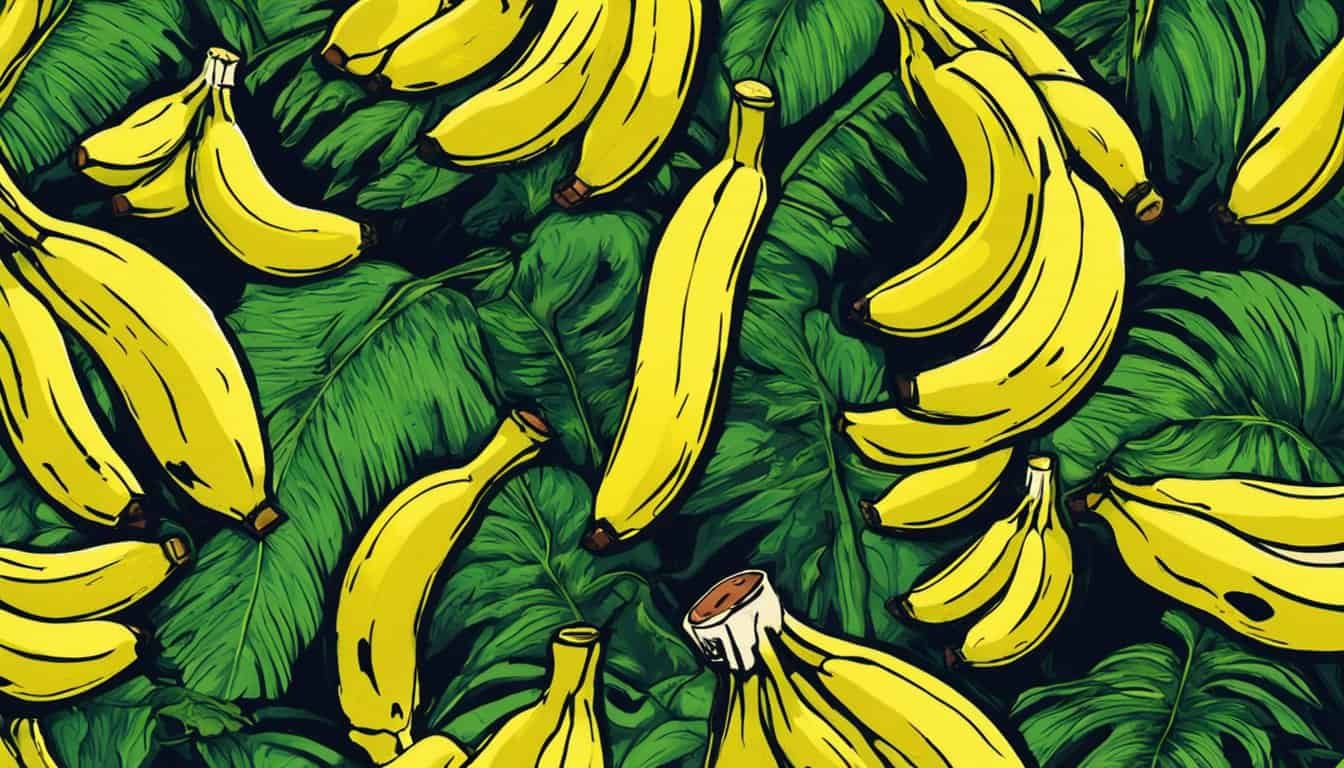
Therefore, it is best to consult with a healthcare professional before consuming any more than two bananas per day in order to determine if an individual’s diet needs further adjustment or not.
Bananas are packed with minerals like potassium which helps the body maintain normal blood pressure levels while reducing the risk of heart disease and stroke. Additionally, they contain dietary fibers that help support good gut bacteria which promotes digestion while regulating bowel movements.
Lastly, they provide essential vitamins such as Vitamin C and B6 necessary for maintaining healthy skin cells and boosting immunity respectively.
In conclusion, there isn’t necessarily a hard limit for how many bananas one should eat in order to maintain optimal health; however, individuals should practice moderation when consuming this fruit due to its high caloric content relative other fruits available today.
That being said if eaten moderately (i..e 1-2 banana per day) then overall wellbeing will remain intact without compromising nutrition intake from other essential food groups needed for long term vitality .
What Does 2 Bananas a Day Do for You?
Eating two bananas a day can provide many health benefits. Bananas are known to be rich in essential vitamins, minerals, and fiber which can help maintain overall health and wellbeing.

They also contain potassium which is beneficial for heart health as it helps reduce blood pressure levels. Eating two bananas a day could potentially lower the risk of stroke or other cardiovascular diseases.
In addition to providing essential nutrients, eating two bananas per day may aid weight loss efforts due to their low calorie content and high fiber content; both of these promote satiety after meals as well as slow down digestion resulting in slower absorption of sugar into the bloodstream while keeping you feeling full longer.
Also loaded with antioxidants such as Vitamin C, banana consumption may reduce inflammation that has been linked to various chronic conditions such as diabetes and cancer protection too!
Which Fruit Has the Most Protein?
For those looking to increase their protein intake, there are many options available in the form of fruits. Different types of fruit contain varying amounts of protein, and some are particularly high in this essential nutrient.
Avocados top the list with 4 grams of protein per serving (one-half a medium avocado). Other excellent sources include guavas (4.2 g per cup), bananas (1.3 g per average banana) and kiwi fruit (about 2 g for two large ones). Dried apricots also have around 2g per ¼ cup; dried figs have almost 3g while raisins provide 1 gram/quarter cup served.
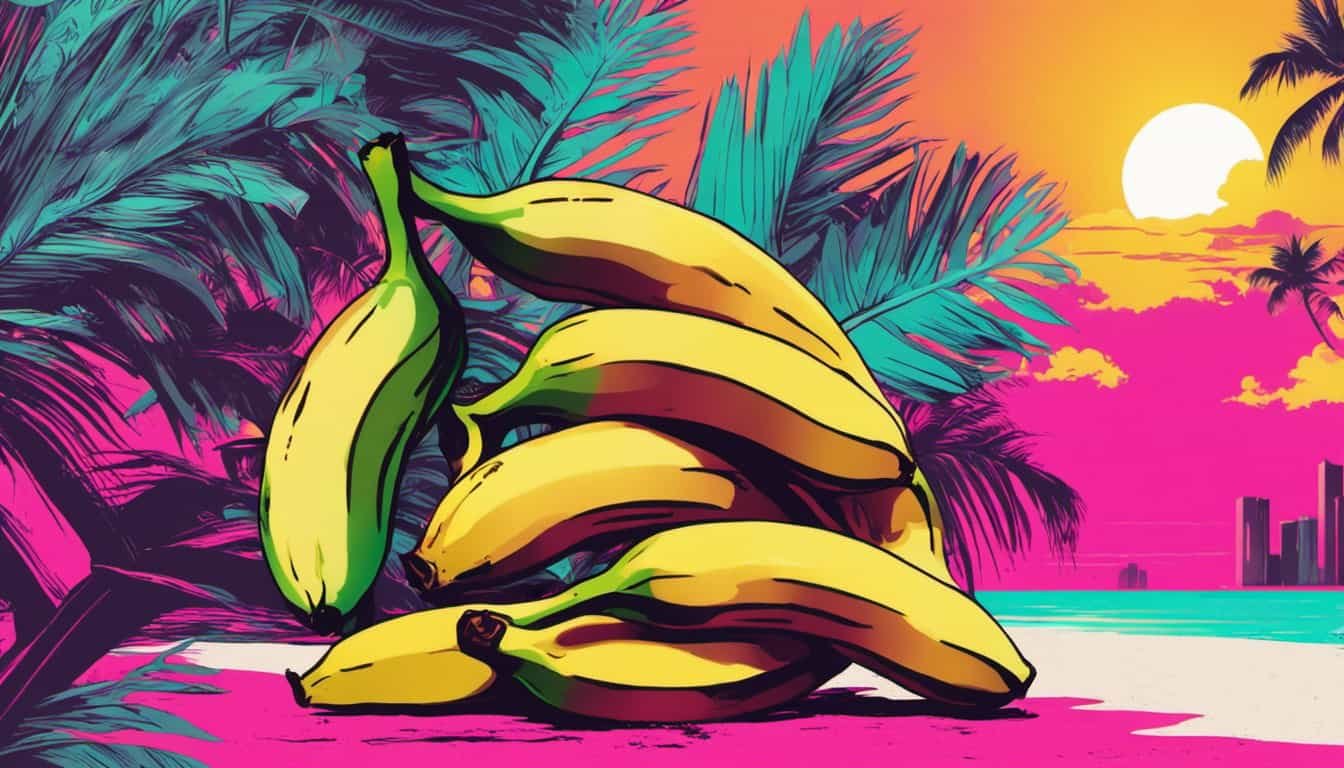
In addition to providing essential proteins, these fruits offer other important vitamins and minerals such as potassium, vitamin C, folate and dietary fiber that promote healthy body function overall.
Therefore not only can they help satisfy your nutritional needs but also give you an extra boost when it comes to getting enough daily nutrients!
What Does Banana Do to a Woman’s Body?
Bananas are a great source of nutrition for women and can have positive effects on their body. Bananas contain high levels of potassium, which is an important mineral that helps maintain healthy blood pressure levels.
They also contain vitamin B6, which helps with the production of hemoglobin cells to transport oxygen in your bloodstream and convert food into energy. In addition, bananas provide dietary fiber to help keep you regular and reduce constipation symptoms.
Furthermore, banana consumption has been linked to improved moods due to its tryptophan content – a precursor for serotonin (the happiness hormone).

This could explain why bananas tend to be associated with smiley faces! All these benefits make eating one or two bananas every day an excellent choice for any woman looking after her health.
Can You Eat Banana Peel?
Eating banana peels might seem like a strange idea, but there are actually many health benefits associated with consuming them. Banana peels contain many of the same nutrients as the inside of a banana, such as potassium and dietary fiber.
They also contain antioxidants that can protect against damage caused by free radicals. Additionally, they may help to reduce inflammation in the body and support healthy digestion due to their high content of prebiotic fibers.
While eating raw unripe banana peel can be dangerous due to its potential toxins; boiling or steaming it for several minutes helps remove these risks while still preserving some nutritional value.
Additionally, adding spices like cinnamon or cumin can enhance flavor while providing additional health benefits such as improved blood sugar balance and better digestion.

Overall, making use of banana peels is an excellent way to get more nutrition from your daily diet without having negative side effects on your health!
Bananas Provide Your Body With a Bunch of Essential Nutrients
As we just mentioned, you’re not going to take in many calories when you work your way through a banana. Even if you eat an extra-large banana, the answer to the question, “How many calories in a banana?”, is still only going to be about 135.
But what bananas lack in calories, they more than make up for when it comes to nutrients. You’ll find so many different essential nutrients jampacked into a banana and give your body immediate access to all of them.
In a medium-sized banana, you will often find your fair share of:
- Potassium (about 9% of the recommended daily intake)
- Vitamin C (about 11% of the recommended daily intake)
- Vitamin B6 (about 33% of the recommended daily intake)
- Copper (about 10% of the recommended daily intake)
- Manganese (about 14% of the recommended daily intake)
You’ll also find about 3.1 grams of fiber. That’s a sizable amount when you consider that the average American adult is supposed to get about 25 grams of fiber in their daily diet.
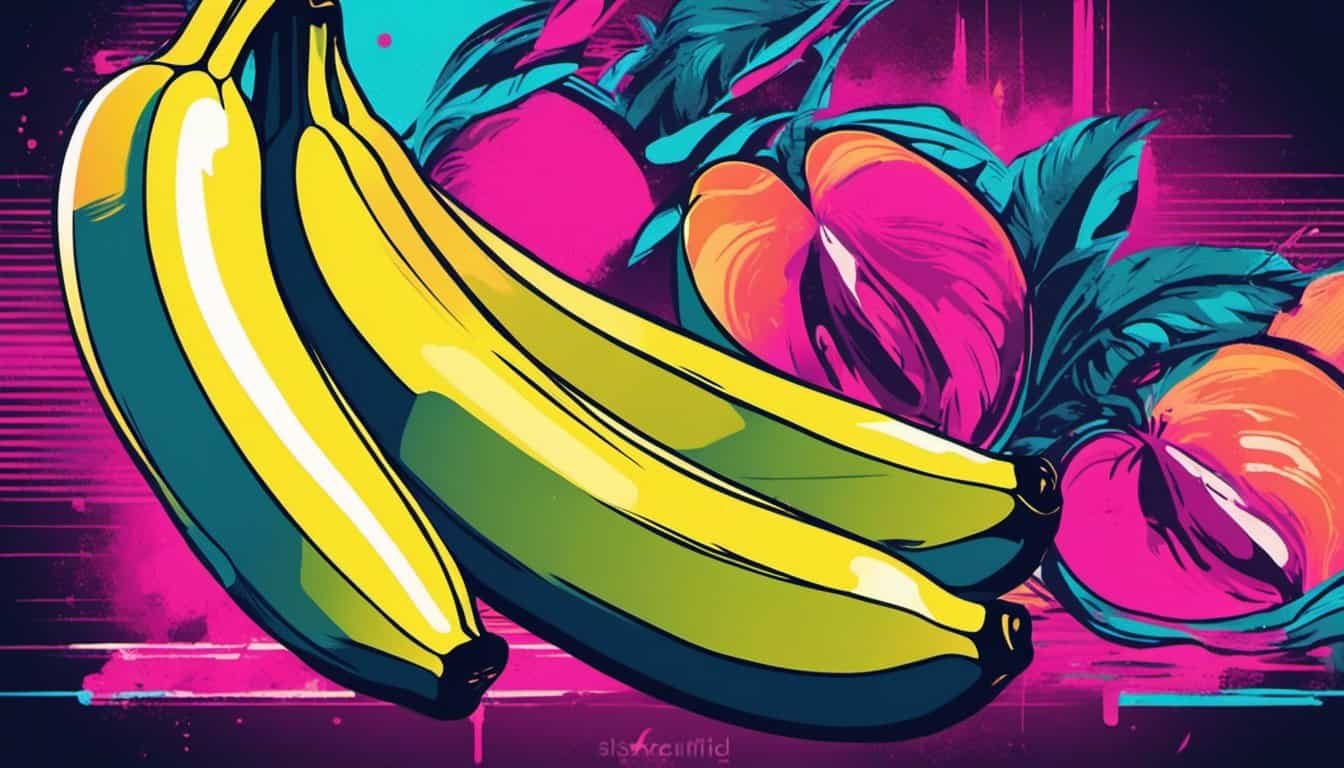
There are also a few things—outside of calories—that you won’t find in bananas. Bananas only contain about 1.3 grams of protein and about 0.4 grams of fat, which is next to nothing in the grand scheme of things.
Helps Improve Your Heart Health
Heart disease is, as you may know, the leading cause of death in the country right now. More than 600,000 people die every year due to heart disease. It accounts for about 25% of all deaths.
You may be able to improve your heart health and avoid dealing with heart disease down the line by incorporating bananas into your diet. Bananas are high in potassium, and some studies have suggested that potassium plays a vital role in controlling blood pressure and reducing the strain put on a person’s heart.
Despite the importance of potassium, the vast majority of Americans aren’t taking in enough of it day in and day out. In fact, it appears as though just 2% of people get the recommended amount of potassium.
If you suspect that you aren’t getting enough potassium, eating bananas can help turn this trend around. You can start getting enough potassium in your diet, and it might make your heart a lot healthier over time.
Gives Your Digestive Health a Boost
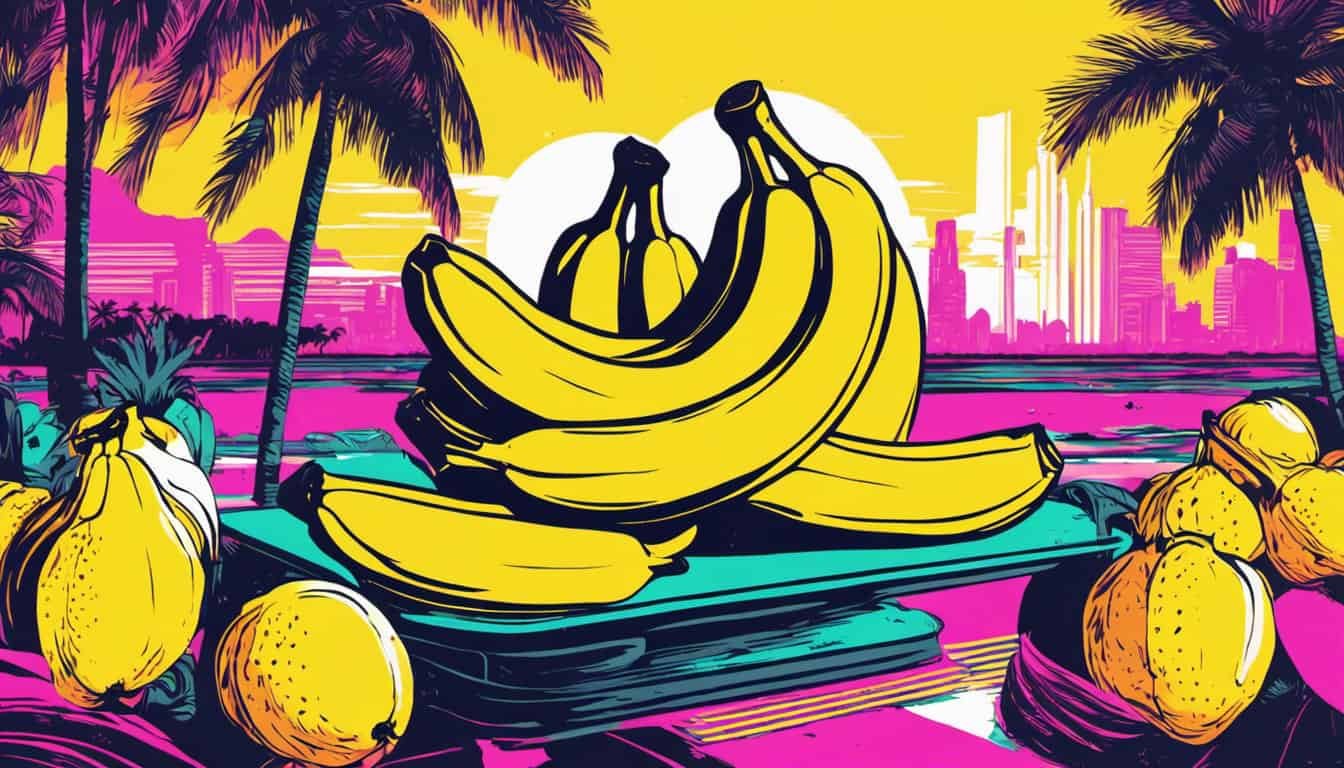
Eating more bananas may improve more than just your heart health. It may also work wonders for those who suffer from digestive health issues.
Bananas have two kinds of dietary fiber in them. They contain pectin and resistant starch. And the resistant starch in bananas, in particular, might be very beneficial for your digestive system.
Resistant starch doesn’t go through the normal digestion process when it enters your body. Instead, it sidesteps digestion and makes its way into your large intestine where it provides sustenance for the good bacteria that are located in your gut.
Pectin might also benefit your body in a big way. There are some researchers who believe that pectin might help to protect people against the threat of colon cancer. Studies on this specific claim are ongoing, but there is some evidence to suggest a connection between pectin and colon cancer.
Makes It Easier for You to Lose Weight
At any given time, about 50% of all Americans are trying to lose weight. Are you one of them right now?

If so, you might be able to shed some extra pounds by working bananas into your diet. While there are no scientific studies that have shown a definitive connection between eating more bananas and losing weight, bananas may be able to help you on your weight-loss journey.
Even though bananas don’t have many calories in them, the fiber in them will often make people feel full when they’re done eating one. Some studies have also revealed that the resistant starch in bananas may decrease a person’s appetite.
If nothing else, bananas are a much healthier alternative to many other snack foods. It can’t hurt to eat more of them as opposed to turning to junk food when you’re hungry.
Regulates Your Blood Sugar Levels
Are your blood sugar levels always out of whack?
If this is being caused by diabetes, simply eating bananas isn’t going to help the situation (although you don’t necessarily need to avoid them). You should speak with your doctor about coming up with a more effective treatment for dealing with problems with your blood sugar levels.
But generally speaking, the fiber in bananas can help people to manage their blood sugar levels and keep them in the normal range. Studies have shown that both pectin and resistant starch can slow down how quickly your stomach empties once you eat, which can moderate your blood sugar levels.
Try taking down a banana after a meal to see if it changes the way that you feel. A banana could very well allow you to avoid sudden spikes and dips in your blood sugar levels when you eat it at the right time.
Reduces Your Chances of Developing Kidney Disease
Earlier, we touched on how taking in more potassium can prove to be great for your heart health. But potassium might be able to do more than make your heart healthier. It may also help your body to keep your kidneys healthy.
Chronic kidney disease is something that affects almost 40 million Americans. Many of these people end up with chronic kidney disease as a direct result of having high blood pressure. And as we mentioned when we talked about how bananas can improve a person’s heart health, the potassium in bananas may stop high blood pressure from becoming a problem for people.
This could, in turn, stop chronic kidney disease from developing in some people. People wouldn’t have to worry about suffering from it if they’re able to use potassium to prevent high blood pressure in the first place.
Multiple studies have shown that those people who eat about four to six bananas per week might be about 50% less likely to be diagnosed with chronic kidney disease. That should make eating more bananas a no-brainer for many people.
Stops Muscle Cramps and Soreness From Slowing You Down
It’s not uncommon at all to see athletes scarfing down bananas immediately after a big game or a big race. Many runners have turned to bananas time and time again as part of their post-race meals.
Have you ever wondered why that is? Well, it’s because bananas are thought to help athletes avoid having to deal with painful muscle cramps and muscle soreness in the aftermath of athletic competitions. The thought is that the nutrients in bananas may stop cramping and soreness from setting in.
Despite the popularity of bananas among athletes, there actually isn’t a whole lot of evidence out there to suggest that bananas can prevent muscle cramps and soreness. But many athletes swear by them and credit bananas with helping their bodies to recover following games or races.
If you enjoy working out or participating in sports, consider giving bananas a try before and after you exercise or play. You could very well find that they are every bit as beneficial as athletes say they are.
How Many Calories in a Banana? Not Enough for You to Be Concerned
Trying to cut calories from your diet is a great idea. As most experts will tell you, “too many calories” is one of the top reasons why so many Americans are unhealthy and overweight.
But you don’t have to give up bananas in an effort to cut calories. The answer to the question, “How many calories in a banana?”, isn’t something you need to be concerned about since there are so few calories in them.
Instead, you should focus on all of the other things in bananas, like potassium, fiber, and other nutrients. They may be able to make you a much healthier person than you are now when you start eating more bananas.
Want to learn about some of the other advantages of eating bananas? Read this blog to get information on the more surprising benefits of adding bananas to the mix.
Our Final Thoughts
Bananas are a great source of nutrition that can help you lose weight, have more energy and stay healthy. Whether you’re trying to cut back on sugar or just looking for a nutritious snack, bananas should definitely be part of your diet.
Knowing how many calories are in a banana is important information to consider as part of any health and wellness plan. So if you want to make sure your diet includes the right amount of nutrients from bananas, be sure to do some further research!







